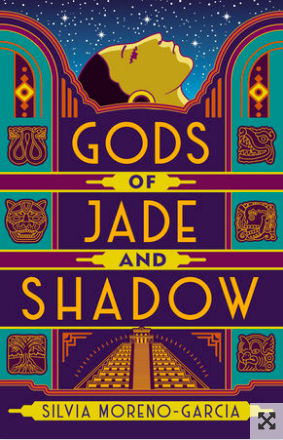All appearances are empty. So says Lama Rinzen, the reincarnated Buddhist monk-cum-freelance detective of 49 Buddhas, a quirky, philosophical, Dharma-inspired murder mystery by author Jim Ringel. It’s a lesson Rinzen claims to have mastered during the many lifetimes he has searched for the Sacred Dorje, a relic from the monk’s past. Rinzen, a bodhisattva, has delayed his own enlightenment for the sake of helping all other beings achieve enlightenment first. To accomplish this, he must find the dorje. The moment he lays hands upon it, all suffering will end, and all beings will be enlightened.
It’s a noble quest, an act of utmost compassion … or is it? Savvy readers will know better than to trust Rinzen’s declarations of selflessness and pure intention. While the novel incorporates elements of fantasy into a gritty, mildly dystopian near-future setting, it is first and foremost a murder mystery, where things are never quite what they seem to be, not even the hero. Or, as Rinzen himself might say, where things are never how we perceive them to be.
49 Buddhas is the first novel in the Lama Rinzen mystery series. Next up: The detective is reborn in the Hungry Ghost realm.
Perception is everything in 49 Buddhas. On its surface, the story has the appearance of the hardboiled crime novels that Ringel obviously knows and loves. All the genre tropes perfected by Dashiell Hammett and Raymond Chandler are present and accounted for: the flawed hero with a dark past, the femme fatale, the gruff and world-weary cop, the injustice and corruption of a society on the brink of collapse, the violence, the misdirections and plot twists—and don’t forget the bloody murder that sets the story in motion.
The murder in question is gruesome. The victim, Sonny Heller, a big-shot insurance salesman in Denver, Colorado, has been flayed alive, his skin sliced off in strips, hands and feet hacked apart, face cut away one piece at a time. Rinzen, called in by the cash-strapped Denver Police Department, which has replaced most of its workforce with part-time cops and freelance detectives, recognizes the modus operandi: lingchi, a Chinese form of execution better known in the West as “death by a thousand cuts”—not a pleasant way to go, but a gripping way to start a murder mystery.
The lone full-time cop on the case, Inspector Fernandez, doesn’t know what to make of the scene or Rinzen’s unexpected intrusion there. As far as Fernandez is concerned, it’s just another murder in a rough part of Denver, and the only reason anyone downtown cares about the investigation is because the victim is a rich guy with ties to the city’s bigwigs. Closing the case isn’t about justice; it’s about finding the most plausible explanation for the crime, a story that seems true in a relative sense, even if it’s not absolutely true.
None of this matters to Rinzen, who by his own admission isn’t a detective at all. In fact, the lama is “newly arrived” to this lifetime, having been reborn into the body of a twenty-one-year-old Tibetan monk just moments before getting the call from Denver PD. Maybe the call is a mistake, or maybe not. The harried dispatcher at the police precinct has been ringing names on the freelance list all morning and getting no answers. “Finally, you pick up,” the dispatcher tells Rinzen. “That’s gotta count for something. You gotta be a detective of some sort, picking up the phone like you did.” The dubious logic keeps Rinzen on the line long enough to learn that Sonny Heller had insured a shipment of Buddha statues from China shortly before his death. Rinzen jumps to the conclusion that the Sacred Dorje was also part of the shipment and accepts the freelance job, convinced that solving Sonny Heller’s murder will lead him to the ever-elusive artifact.
Rinzen’s single-minded pursuit of the dorje immediately puts him at odds with Fernandez, a Chinese customs agent named Yoong, and Abril, the aforementioned femme fatale, who claims to have “summoned” Rinzen to help get her health policy with Heller’s insurance company reinstated. The more he learns about the mystery, the more clear it becomes that Rinzen is in over his head. Clear to the reader, that is, not to the lama. That’s because Rinzen’s overconfidence is worthy of an epic hero. As a revered spiritual teacher, he believes that his achievements over many lifetimes have prepared him for detective work. “I have not been a detective before,” he says, “but I know its tricks. To see things as they are without expectation.” Hello, dramatic irony.
Jim Ringel. Photo courtesy of the author.
Speaking of expectation, readers might reasonably expect such hubris to be unbecoming of a Buddhist monk whose self-professed mission is to end all suffering. One of the most satisfying things about the novel is how Ringel plays Rinzen’s character flaws against the popular Western stereotype of Buddhist monks as humble, placid mystics dispensing cosmic wisdom in pithy Zen soundbites. Whereas a character cast in that mold would simply “see things as they are” and vanish in a puff of enlightenment, Rinzen is repeatedly tripped up by his own failure to understand the lessons he believes he has already learned. As the mystery of Sonny Heller’s murder unfolds, it is the deeper conflict between our would-be hero’s self-image and the consequences of his actions that captures the imagination and brings an unexpected emotional depth to the story. Even for a bodhisattva, the struggle is real.
The struggle is also unexpectedly funny. Despite the truly horrific opening scene, plenty of violence, and a steadily increasing bodycount, Ringel infuses 49 Buddhas with a dark yet self-assured sense of humor reminiscent of the films of Joel and Ethan Coen—it’s not a stretch to say that the novel owes as much to The Big Lebowski as to The Big Sleep. The story’s stylized dialogue sets up a number of running jokes and call-backs that riff on subjects as far flung as shipping manifests, insurance scams, greed and materialism, and the Western world’s love affair with bureaucracy, all interspersed with poignant lessons in Buddhist philosophy. And that’s not to mention the militant bicycle gangs roving Denver’s Colfax Avenue, their spandex uniforms emblazoned with corporate sponsorships, their favorite bars off-limits to anyone wearing rival colors, as Rinzen discovers when his purple robes provoke a confrontation with a gang that has been terrorizing the city’s burgeoning Tibetan émigré population. The scene is both menacing and humorous, not least because Rinzen turns the tables on his assailants with a sudden display of martial prowess and some forbidden magic.
While fans of conventional murder mysteries and hardboiled detective novels might be put off by the supernatural elements of 49 Buddhas, readers with an appreciation for stories that borrow freely from other genres will appreciate how Ringel weaves in just enough magic to blur the nature of reality. It’s a nice touch, and it opens the door to all manner of unexpected encounters, including visions from other lifetimes. As these visions reveal parts of Rinzen’s past that he has hidden from himself, it becomes clear that the monk’s long overdue lesson in “seeing without expectation” is really what the story is about. With each revelation, Rinzen comes closer to the moment when he must finally see himself as he is, not as he imagines himself to be.
Meanwhile, the whodunnit of Sonny Heller’s murder keeps chugging, chock full of twists and surprises. With so much happening on so many levels, physical and metaphysical, the action can sometimes feel overwhelming, the plot fragmented. Scenes often have a frenetic, slightly out-of-focus quality, an effect that seems calibrated to evoke in the reader Rinzen’s own incomplete perception of reality. The technique doesn’t always succeed, but the occasional missteps don’t derail Ringel’s ambition to tell a story that is more than a murder mystery. If Lama Rinzen can be so easily distracted by appearances in his quest for enlightenment, why should we expect our own experience to be any different?
Lama Rinzen never makes it to a bowling alley in 49 Buddhas, but he and the Dude are kindred spirits in the realm of unlikely detective heroes.


































Cadwell Turnbull's new novel — the first in a trilogy — imagines the hard, uncertain work of a fantastical justice.